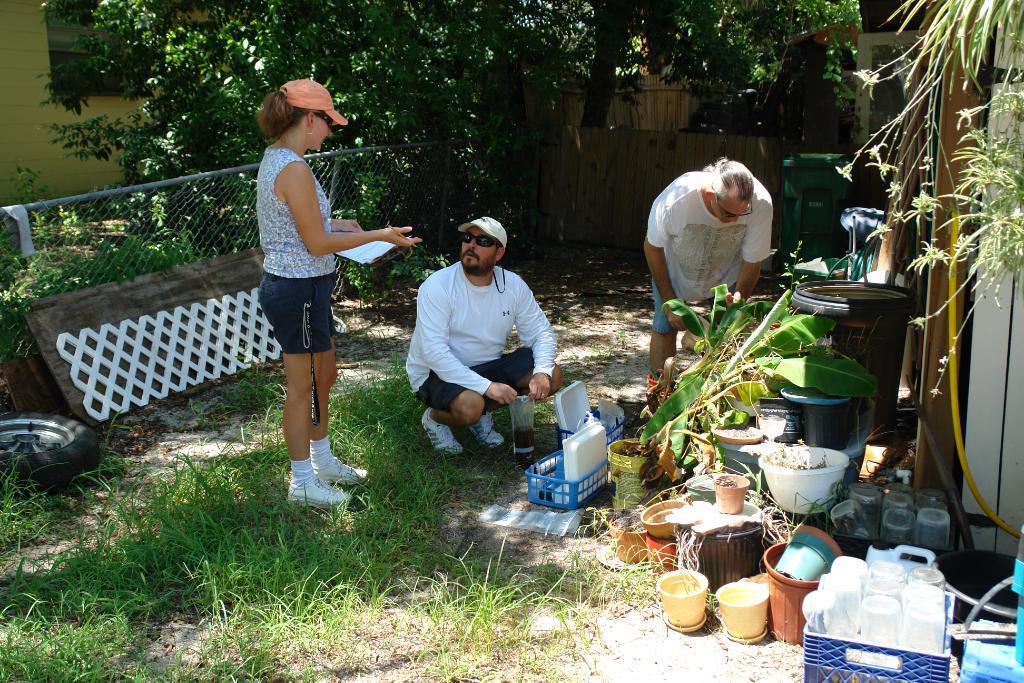Container Mosquitoes Vectors of Disease
Mosquitoes which occupy container habitats in their immature stages are abundant and documented vectors of a number of arboviruses of importance to humans, including West Nile, chikungunya, dengue, Zika and many others. Source reduction, how ever accomplished, is one of the most effective control methods for routine container mosquito abatement, and always advised in the event of an outbreak, and a vital part of any integrated mosquito control strategy that involves container mosquitoes. To develop an efficient and effective source reduction program, however, one needs to know which types of containers are productive, and the temporal and spatial variability in container productivity.
We are currently conducting a study of container mosquitoes in six Florida neighborhoods to: 1) quantify mosquito production from different types of containers; 2) compare mosquito productivity in different container types in different parts of Florida; 3) compare container abundances between different neighborhoods. Results of this study will help guide source reduction and integrated mosquito control efforts for container mosquitoes in Florida and elsewhere.
Relevant publications:
Rey, J.R. and S.C. O’Connell. 2014. Oviposition by Ae. aegypti and Ae. albopictus: Influence of congeners and of oviposition site characteristics. J. Vector Ecology 39:1-7.
Contact: Jorge Rey, Sheila O'Connell
Fig 1. Sampling water-holding containers outside a Florida residence.
- Back to FMEL Research Areas

